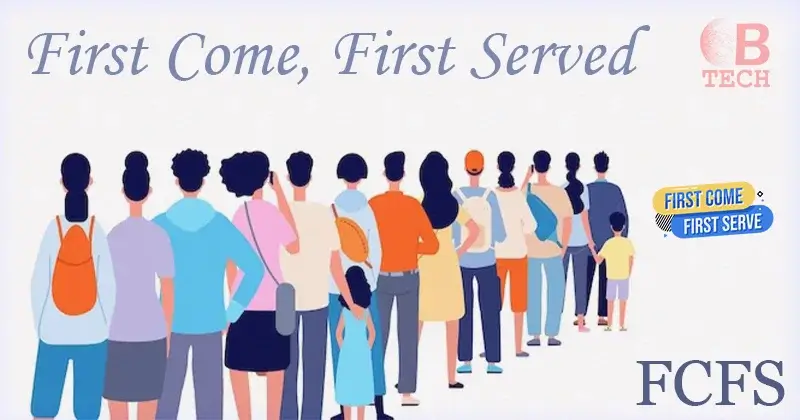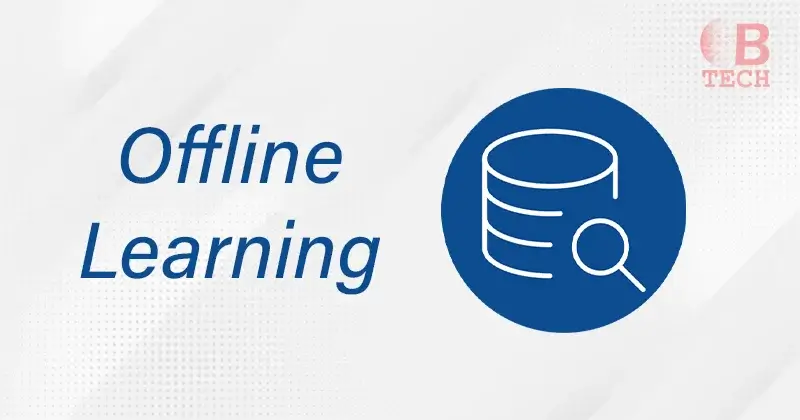What Does First Come, First Served Mean?
First Come, First Served (FCFS) means that tasks, processes, or requests are handled based on the order they arrive. It’s like standing in line at a busy store—those who came first are served first. This method is used by operating systems and networks to manage queues efficiently. FCFS is also known as FIFO (First In, First Out) or FCFC (First Come, First Choice) scheduling.
The First Come, First Served (FCFS) algorithm is straightforward and easy to understand. It works much like a grocery store checkout line—customers are served in the order they arrive, regardless of the complexity of their purchases. This simplicity makes FCFS predictable, as it follows a first-in, first-out approach.
FCFS is efficient and requires minimal human or AI intervention. Tasks are processed without the need for prioritization based on urgency or complexity. In FCFS, the CPU itself handles scheduling, unlike other algorithms that rely on software or more intricate scheduling methods.
Explaining the First Come, First Served (FCFS) Algorithm
First Come, First Served (FCFS) is a simple and easy-to-implement algorithm that doesn’t prioritize tasks based on how long they will take to complete. While this makes it efficient for systems with similar tasks requiring similar time and resources, it can be less effective for complex systems with a variety of requests.
The risk with FCFS is that a simple task might get stuck behind a complex one in the queue, simply because the complex task arrived first. This can lead to longer wait times for simple tasks, which can be frustrating in systems where tasks vary in complexity.
How Does an FCFS Scheduling Algorithm Work?
The First Come, First Served (FCFS) scheduling algorithm works by processing tasks in the order they arrive. Let’s take a look at how it handles three requests: P1, P2, and P3.
Processing Order:
- P1: Requires 25 seconds.
- P2: Requires 10 seconds.
- P3: Requires 15 seconds.
Queue Processing:
- P1 starts processing immediately, with zero wait time.
- P2 waits for 25 seconds before processing starts.
- P3 waits for 35 seconds before processing starts.
Total Processing Time:
- The total time taken by FCFS to complete all three requests is 50 seconds.
Comparison with Other Algorithms:
- FCFS processes tasks sequentially, like other single-CPU systems.
- It doesn’t prioritize tasks based on complexity or other factors, which can lead to suboptimal performance.
- In comparison, more intelligent scheduling algorithms may complete more tasks in the same time frame by starting with simpler tasks first.
Overall, while FCFS is easy to implement, it may not be the most efficient scheduling algorithm for systems with varying task complexities.
The Convoy Effect & First Come, First Served (FCFS)
The Convoy Effect is a phenomenon in operating systems where a slow task can delay other tasks behind it, similar to how a slow vehicle can slow down a convoy of vehicles. This effect is seen in First Come, First Served (FCFS) scheduling, where tasks are processed in the order they arrive.
Despite its drawbacks, FCFS has its uses. In situations where re-evaluating task priorities would waste more time than using FCFS, it can be a practical choice. However, it’s important to recognize its limitations, especially in systems with diverse task complexities.
FAQs About FCFS
What does FCFS mean?
‘First Come, First Served’ is the meaning of FCFS.
What does FCFS mean on Facebook?
On facebook, FCFS mean the same: First Come, First Served.
What is FCFS Meaning in Trucking?
First Come First Serve, or FCFS, describes how the warehouse operates when a shipper or customer doesn’t need an appointment. Full Truckload (FTL): Depending on available space or weight capacity, using the entire truck to convey products.



